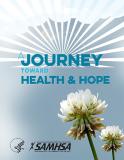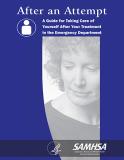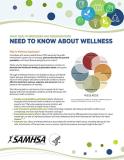
This resource guides people through the first steps toward recovery and a hopeful future after a suicide attempt. It includes personal stories from survivors, and strategies for recovery, such as re-establishing connections and finding a counselor.
Units per Product
Download
A Journey Toward Health and Hope
File Type: PDF
File Size: 1.47 MB






